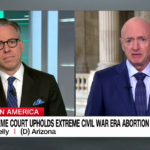
Europe Debates How to Cut Purchases of Russian Oil

European governments, having decided last week to phase out purchases of coal from Russia, are set to begin a debate this week about a more ambitious target: weaning themselves off Russian oil.
European Union officials in Brussels are seeking to make oil the focus of the bloc’s next set of economic measures against Russia over its invasion of Ukraine.
The debate, though, isn’t likely to be resolved soon. Germany continues to resist the idea of an oil ban, and EU officials are wary of acting during the French presidential election, whose first round took place Sunday. Meanwhile, Hungary has become more entrenched in its opposition, diplomats say.
On Friday, while meeting Ukrainian President Volodymyr Zelensky in Kyiv, EU foreign policy chief Josep Borrell said he would put oil sanctions on the agenda when EU foreign ministers meet in Luxembourg on Monday.
“The sanctions that we have agreed on are…creating a big damage to the Russian economy but more has to follow,” Mr. Borrell said in Kyiv.
Yet any swift decisions on oil sanctions face major political obstacles. With EU member states split on the issue, Brussels officials say there will be no decisions on Monday and that even the presentation of specific proposals could be weeks away.
Germany, Europe’s biggest economy, is leading the opposition to sanctioning imports of Russian oil or gas, and has so far resisted calls from Eastern European countries such as Poland for stronger energy sanctions.
EU officials are studying ideas including a phased-in oil embargo, a tariff on Russian oil imports to reduce demand and forcing some part of the oil payments into an escrow account which Russia could only access to make certain payments, according to officials.
The EU has already announced plans to reduce its Russian energy imports over time. But pressure for faster energy sanctions is rising as Ukrainian officials accuse Russian forces of atrocities and the civilian death toll from the Russian invasion mounts.

European foreign policy chief Josep Borrell, and European Commission President Ursula von der Leyen meeting with Ukrainian President Volodymyr Zelensky in Kyiv on Friday.
Photo: stringer/Agence France-Presse/Getty Images
On Friday the EU adopted its fifth set of economic sanctions against Russia since President Vladimir Putin’s invasion of Ukraine began on Feb. 24. The latest package includes a complete phasing out of EU purchases of Russian coal by August.
However, the EU has yet to impose sanctions on its two biggest commercial dealings with Russia—the purchase of oil and gas. Those exports have cushioned the impact of other sanctions on Russia’s economy and provide a vital source of revenue for the Russian government’s budget, including its military spending.
According to Ben McWilliams, analyst at Brussels-based think tank Bruegel, the EU was importing around 800 million euros a day, equivalent to $870 million, in energy from Russia in November, comprising 400 million euros of gas, 380 million euros of oil and 20 million euros of coal. In November, the EU purchased 2.7 million barrels a day in Russian crude oil and 1.1 million barrels a day in other oil products.
Russia, the world’s third largest oil producer, provided about a quarter of the EU’s oil imports in the first half of 2021, according to the EU’s statistics agency. That accounted for roughly half Russia’s oil exports.
Many EU countries, including Germany and Italy, are even more reliant on Russian gas, which is why sanctions on oil are seen as more feasible.
Sanctions on oil “won’t be easy to agree and a lot of policy options are in the mix,” said Mujtaba Rahman, head of Europe at political-risk consulting firm Eurasia Group, but he added that momentum for some form of action on oil is building.
Germany, Europe’s biggest economy, has been particularly reluctant to risk harm to its industries by sanctioning Russian oil or gas, despite mounting international criticism of Berlin’s stance. Germany, which also insisted on a slower timetable for stopping Russian coal imports than many other EU countries wanted, has said it could halve its Russian oil imports by this summer, but that it would need until the end of this year to stop them entirely.
France’s presidential elections, whose first round is on Sunday, could slow any detailed plans until after the final round on April 24. President Emmanuel Macron has expressed support for an oil embargo, but his finance minister, Bruno Lemaire, has said it would take several weeks to reach agreement within the EU about how to proceed.
Hungary’s newly re-elected Prime Minister Viktor Orban has repeatedly said his government will oppose sanctions that undermine the country’s energy security. A senior European official said Budapest seems to have “dug in” on its opposition to energy sanctions since the elections on April 3. Austria is also notably reluctant to impose tougher energy sanctions.
Diplomats say that some southern European countries are also reluctant to back oil and gas embargoes, even though they have signaled they would not block the measures if a consensus emerged.
Poland and the Baltic countries are in the opposite camp. Lithuania announced last week it had stopped all oil and gas purchases from Russia, despite its traditionally heavy reliance on Russian energy supplies.
SHARE YOUR THOUGHTS
Will the EU be able to put in place a ban on Russian oil? Join the conversation below.
Opposition to an oil embargo partly reflects governments’ fear of a voter backlash against high energy prices. Prices of fuel and electricity were already rising before Russia’s attack on Ukraine.
The EU has pledged to step up the production of renewable energy to phase out Russian energy imports. It has also been talking with Middle Eastern oil and gas producers in recent weeks, as well as Asian energy buyers, to increase and redirect energy deliveries toward Europe. German Economy Minister Robert Habeck traveled to Qatar and the United Arab Emirates in late March to try to secure new gas deliveries.
The U.S. has also promised to increase shipments of liquefied natural gas to Europe to ease its energy squeeze, and is aiming to ship 50 billion cubic meters of LNG to Europe annually in the coming years, making up for about a third of the gas the EU receives from Russia.
Write to Laurence Norman at [email protected]
Copyright ©2022 Dow Jones & Company, Inc. All Rights Reserved. 87990cbe856818d5eddac44c7b1cdeb8
Source: https://www.wsj.com/articles/european-countries-debate-how-to-cut-purchases-of-russian-oil-11649595841

















